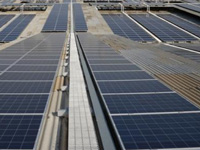Federal government will provide 200 bulldozers for Balochistan and 100 for NWFP, which would be hired out to the farmers at no profit no loss basis to facilitate them in reclaiming the cultivable wasteland. According to the sources in Ministry of Food, Agriculture and Livestock (Minfal), around 219,375 hectares of cultivable wasteland (NWFP 73,125 and Balochistan 146,250 hectares) would be reclaimed through the use of 300 bulldozers. This will enhance agricultural production in the NWFP and Balochistan provinces, sources said. According to an update Minfal study, about 8.12 million hectares of land falls in the category of cultivable wasteland out of which 1.22 and 4.0 million hectares are in NWFP and Balochistan respectively. Provincial Agriculture Engineering Departments need additional machinery and 900 bulldozers to reclaim the cultivable wasteland. Minfal sources mentioned that agricultural growth is key to curtailing poverty since poor heavily rely on agricultural goods and services for their livelihood. In line with the objectives of PRSP, Minfal has approved a number of projects for crop maximisation to reduce poverty and food insecurity in Pakistan in PSDP 2006-07. A number of projects assisted by ADB, FAO and UN/WFP for crop maximisation, increasing food security and promoting poverty alleviation are also under implementation. Sources said that government has given top priority to the development of water resources to maximise crop production. This has been done through progressively increasing surface water supplies and conserving water using the latest technologies and protecting land and infrastructure from water logging, salinity, floods and soil erosion. The main objectives are overcoming the scarcity of water through augmentation and conservation means ie by construction of medium and large dams and by efficient utilisation of irrigation water and restoring the productivity of agricultural land through control of water logging, salinity and floods, sources added. They said that an integrated programme approach for water management has been adopted. On-farm Water Management (OFWM) projects have been implemented on community participation basis in the provinces, AJ&K and Federal Agencies. Water conservation is being ensured under the President's programme for the improvement and lining of watercourses. This programme envisaged lining improvement of 87,000 watercourses at a cost of Rs 66 billion within 3-4 years. This initiative will significantly improve water supply at the farm-gate through reduction in the seepage losses. During the year 2006-07, 18,390 watercourses have been lined and renovated against the target of 18,000 watercourses. Minfal sources stated that the government has fulfilled most of the commitments related to different WTO-specific agreements. Pakistan has already started improving quality and standards of agricultural export commodity markets. Imposition of strict Sanitary and Phyto-Sanitary (SPS) measures and adoption of other significant regulatory steps through the Department of Plant Protection helped increase agricultural exports to the developed countries. Different development projects for the strengthening of laboratories for quality control have been initiated. For grading of agriculture and livestock commodities, grade standards of about 50 commodities, under Grading and Marketing Act, were developed. According to the Minfal study agriculture sector in Pakistan is facing many serious challenges and constraints for future growth. These challenges are embedded in (i) the rising demand for agricultural products with the growth of population and incomes; (ii) the expanding role of free and competitive markets in agriculture trade at the national and international levels. Increased farm productivity, achieved by sustainable use of natural resources and other inputs, and diversification of production from the low value to high value products in response to market demand have to be the key ingredients of future agriculture strategy to make agriculture both productive and profitable; (iii) wide yield gaps in major and minor crops, inefficient use of water at farms, poor quality and availability of agricultural inputs, frequent insect and pest attacks and high incidence of crop and livestock diseases require effective resolution; and (iv) strengthening of agriculture research system is needed to focus more on emerging areas such as biotechnology, genetic engineering, hybrid seeds etc. Improving agricultural knowledge system for effective crop forecasting, and undertaking market reforms in preparation of expanding trade regimes of WTO and Safta are other areas in which Minfal is currently focusing on. Copyright Business Recorder, 2008

